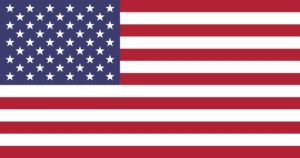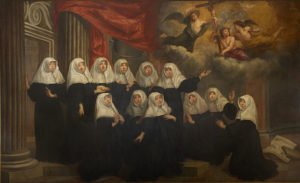 Independence Day celebrates the Declaration of Independence when the Continental Congress declared that the thirteen American colonies were separating from the British Empire to found a new nation. Within the great texts of the American founding is an ambiguous understanding of liberty, or freedom. For Catholics, the interpretation of liberty espoused in the American Founding is very controversial. Some believe that Founding Fathers held a “liberal” interpretation of liberty, whereas many conservatives, especially the neo-cons, think otherwise. Clearly, a liberal interpretation has been very dominant in the Courts, maybe since the early 20th century (known as liberal revisionism), going to the extreme in Planned Parenthood v. Casey (1992) in saying “at the heart of liberty is the right to define one’s own concept of existence, of meaning, of the universe, and of the mystery of human life.” This is what I take a radical liberal understanding of freedom to be. It is directly opposed to the Christian creaturely and trinitarian understanding of freedom. Accordingly, freedom is not rooted in self-possession but is anteriorly found in self-gift. This is summed up in Gaudium et Spes par. 24.: “…man cannot fully find himself except through a sincere gift of himself.” Accordingly, I think the best way of seeing true freedom is in what most people see as its opposite: i.e. the vowed form of life. Hence, the religious life is our model for freedom since it is a radical gift of self to God with the even greater reception of the self perfected.
Independence Day celebrates the Declaration of Independence when the Continental Congress declared that the thirteen American colonies were separating from the British Empire to found a new nation. Within the great texts of the American founding is an ambiguous understanding of liberty, or freedom. For Catholics, the interpretation of liberty espoused in the American Founding is very controversial. Some believe that Founding Fathers held a “liberal” interpretation of liberty, whereas many conservatives, especially the neo-cons, think otherwise. Clearly, a liberal interpretation has been very dominant in the Courts, maybe since the early 20th century (known as liberal revisionism), going to the extreme in Planned Parenthood v. Casey (1992) in saying “at the heart of liberty is the right to define one’s own concept of existence, of meaning, of the universe, and of the mystery of human life.” This is what I take a radical liberal understanding of freedom to be. It is directly opposed to the Christian creaturely and trinitarian understanding of freedom. Accordingly, freedom is not rooted in self-possession but is anteriorly found in self-gift. This is summed up in Gaudium et Spes par. 24.: “…man cannot fully find himself except through a sincere gift of himself.” Accordingly, I think the best way of seeing true freedom is in what most people see as its opposite: i.e. the vowed form of life. Hence, the religious life is our model for freedom since it is a radical gift of self to God with the even greater reception of the self perfected.
 But many are concerned American culture excludes such a view, thereby not supporting the religious life. In 1899, Pope Leo XIII wrote a letter to Cardinal Gibbons entitled Testem Benevolentiae. In the letter, the pope praises the many virtues of America. However, he states his concern over a controversial figure, i.e. Fr. Isaac Thomas Hecker. Fr. Hecker was the founder of the Paulists, a religious order that does not make their members make vows but make a commitment to living out the evangelical counsels. Leo XIII saw this as a threat to the religious life, a tendency he found within the culture of modernity. Here is a section from the letter:
But many are concerned American culture excludes such a view, thereby not supporting the religious life. In 1899, Pope Leo XIII wrote a letter to Cardinal Gibbons entitled Testem Benevolentiae. In the letter, the pope praises the many virtues of America. However, he states his concern over a controversial figure, i.e. Fr. Isaac Thomas Hecker. Fr. Hecker was the founder of the Paulists, a religious order that does not make their members make vows but make a commitment to living out the evangelical counsels. Leo XIII saw this as a threat to the religious life, a tendency he found within the culture of modernity. Here is a section from the letter:
“They [those who disregard the evangelical virtues] say vows are alien to the spirit of our times, in that they limit the bounds of human liberty; that they are more suitable to weak than to strong minds; that so far from making for human perfection and the good of human organization, they are hurtful to both; but that this is as false as possible from the practice and the doctrine of the Church is clear, since she has always given the very highest approval to the religious method of life; nor without good cause, for those who under the divine call have freely embraced that state of life did not content themselves with the observance of precepts, but, going forward to the evangelical counsels, showed themselves ready and valiant soldiers of Christ. Shall we judge this to be a characteristic of weak minds, or shall we say that it is useless or hurtful to a more perfect state of life?
Those who so bind themselves by the vows of religion, far from having suffered a loss of liberty, enjoy that fuller and freer kind, that liberty, namely, by which Christ hath made us free. And this further view of theirs, namely, that the religious life is either entirely useless or of little service to the Church, besides being injurious to the religious orders cannot be the opinion of anyone who has read the annals of the Church.”
This Independence Day thank a religious for modeling the perfection of freedom!